Expert Bankruptcy Defence Lawyer
We are Statutory Demand Experts
We are highly experienced in resolving Statutory Demands and take pride in having helped hundreds of clients and their families save their family home for nearly 20 years.
Bankruptcy Solicitor in London
Expert Defence & Insolvency Litigation
Over 25 Years' experience protecting individuals and businesses from bankruptcy and winding-up pettitions. Providing clarity, integrity, and results across every legal matter.
Defending Bankruptcy Restrictions
Do you need help with bankruptcy restrictions and have you committed bankruptcy offences
If you have been declared bankrupt, specific legal restrictions apply to you. It is crucial to understand these restrictions to avoid committing a criminal offence. Our expert insolvency lawyer at West London Law can guide you through the process and ensure you remain compliant with bankruptcy laws.
Bankruptcy Restriction Orders
What You Need to Know
Restrictions that apply to a person made bankrupt
You cannot do the following if you have been made bankrupt:
- Borrow more than £500 without telling the lender that you have been made bankrupt.
- Act as a director of a company, or become a director, without the court’s permission.
- Manage, start up or promote a company without the court’s permission.
- Change the name of your business without telling people that you are bankrupt.
- Work as an insolvency practitioner.
It is a criminal offence to fail to comply with any of these restrictions, so it is very important to make sure you are aware of what you can and cannot do.
How long do these restrictions last for?
Usually a year from the date of your bankruptcy order.
These restrictions will apply until your bankruptcy ends. This is normally for one year before you are discharged from bankruptcy. If you annul (cancel) your bankruptcy order by making an application to the court then these restrictions will be lifted as soon as your bankruptcy is annulled.
However, these restrictions can also be extended if you are found to have acted in a careless or dishonest way, or if you do not carry out your duties during your bankruptcy. This could happen for example, if you fail to cooperate with your trustee in bankruptcy, or official receiver at the Insolvency service.
You may be asked by the official receiver to agree to a Bankruptcy Restrictions Undertaking
(BRU) to extend the restrictions if you are have not cooperated. The official receiver may
pursue a Bankruptcy Restrictions Order (BRO) by taking you to court if you do not agree to
the BRU.
Are all debts written off after a year?
Yes, usually — unless the trustee extends your bankruptcy by making an application for a bankruptcy restriction order (BRO) or applies for an income payment order (IPO).
You will normally be discharged from bankruptcy after 12 months, regardless of whether all of your debts have been repaid. However, this period could be extended if you are made subject to a bankruptcy restriction undertaking (BRU) or a bankruptcy restriction order (BRO), or if you fail to cooperate with your trustee in bankruptcy during the first 12 months.
The details of your bankruptcy will stay on your credit record for at least six years from the date of the bankruptcy, and it will also be advertised in The Gazette. The trustee will have up to three years to take possession of, and sell, your family home.
Imposing more severe restrictions on you?
What is a public examination?
A public examination is where the official receiver applies to the court for an order requiring you to attend court and respond to questions about your finances. This can happen at any time before the bankruptcy is discharged, which may be a reason the official receiver extends the initial 12-month period, preventing you from obtaining your discharge from bankruptcy.
You may need help with an application to the court to set aside the order for examination. The court will consider several factors, such as whether the public examination would serve a useful purpose or whether you have fully co-operated with the official receiver or trustee in bankruptcy.
Bankruptcy Restrictions Order (BRO)
If the court finds that you have behaved in a dishonest or reckless manner, a Bankruptcy Restrictions Order (BRO) may be made against you.
This extends the time of the restriction which could remain for up to 15 years.
If you are subject to a BRO, you will also have extra restrictions. For example, you will not be able to be a Member of Parliament, a school governor or a local councillor, and you cannot exercise ‘right to buy’. Your creditors will also be informed of the BRO and your details will be published in a press notice issued by the court and appear on the insolvency register.
If you receive notice of bankruptcy restrictions being imposed you should immediately obtain expert advice in deciding whether to defend the application for the Bankruptcy Restriction order (BRO).
Alternatively, you can negotiate a shorter restriction period, by entering into a Bankruptcy Restriction Undertaking (BRU).
What is an Income Payment Order (IPO)?
If the official receiver or trustee discovers you to have surplus money left over after each month after payment of your living costs, they may apply to the court for an Income Payment Order (IPO). This requires you to make payments for a three-year period, and you can still be chased for any missed payments after this time.
You may be able to negotiate with your trustee to agree a lower monthly amount to be paid, known as an Income Payment Arrangement (IPA). This would be agreed out of court, and so you would avoid the costs of court proceedings.
Defending Bankruptcy Restrictions
Defending Bankruptcy Restriction Orders
Call 020 7889 0100
If you receive notice of bankruptcy restrictions, seek expert legal advice immediately. You may have grounds to challenge the Bankruptcy Restriction Order (BRO)or negotiate a shorter restriction period through a Bankruptcy Restrictions Undertaking (BRU), avoiding a formal court order.
Contact West London Law for urgent legal support in defending against extended bankruptcy restrictions orders.
First impression, our clients
West London Law’s expertise helped us navigate a tough financial situation with confidence and clarity.

NEED BANKRUPTCY ADVICE?
Expert Advisors
CALL FOR A FREE Confidential Consultation
Our Bankrupty Services
Debt & Corporate Insolvency
West London Law Limited does not provide reserved services to the public.
Gurvir Birang is a practising solicitor, founder, litigator and bankruptcy expert, authorised and regulated by the SRA. Gurvir Birang practices from Spencer West LLP. Spencer West LLP is authorised and regulated by the SRA.
West London Law is a trading name of West London Law Limited, registered in England and Wales (company number 06776937).
West London Law was set up in 2003 and became non-regulated in 2020 and is no longer a firm of solicitors. This website is for marketing purposes only.
Disclaimer. Information on this website does not constitute legal advice and should not be relied upon as it does not provide a complete statement of the law. Specific legal advice should be sought and tailored to your particular circumstances.






 0207 889 0100
0207 889 0100